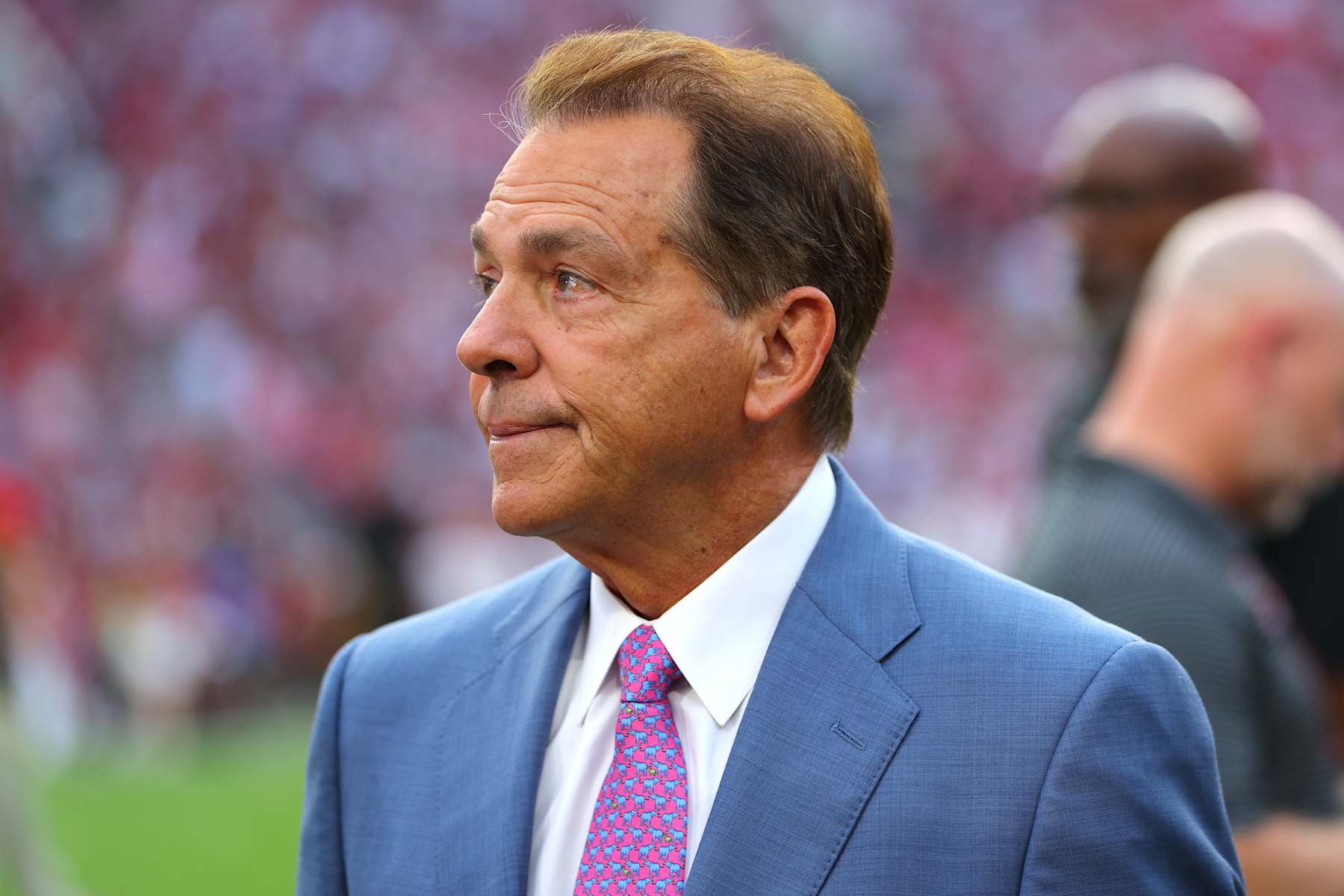
Kevin C. Cox/Getty Images
Former Alabama head coach Nick Saban lobbied for a “flop rule” in college football for when players are feigning in an injury in order to slow down opposing offenses.
“If you get injured, stay down, stay down, don’t get up, because, you know, we can’t substitute fast enough, right,” he said Saturday on College GameDay (via On3’s Nick Kosko). “All right. So now people are taking advantage of this rule, but I think until there’s some penalty for doing it. And I know it’s a very sensitive subject for an official to make a determination about, is a player injured or not, but there should be a flop rule.”
Saban added that “it’s pretty obvious some of these situations where guys are flopping and they’re not injured.” He believes taking away a timeout from the opposing team would be an effective deterrent.
It’s important to draw a distinction between the types of flopping in football.
Sometimes a player will fall theatrically to the turf in order to draw a penalty flag once a play is over.
Then there are the instances when a player appears to be perfectly fine and then lays down while trying to sell an injury.
Ole Miss is perceived to be such a flagrant offender right now that the school released a statement Friday on “feigned injuries”:
As far back as 2021, CBSSports.com’s Dennis Dodd wrote how flopping was seemingly an increasing trend in the sport and also difficult to curtail through administrative means.
It’s not uncommon for a player to suddenly begin cramping up after a play or for the full effects of an injury to be felt once the adrenaline wears off. In those cases, it can look like a player is trying to game the system, and penalizing a team when a player is legitimately injured would make for terrible optics.
Steve Shaw, the NCAA’s national coordinator of officials, also expressed his concern to Dodd that an anti-flopping rule might lead players to “push through real injuries to avoid having to sit out because of a perception of flopping.”
The NCAA said in 2022 its rules committee “considered several in-game options to address this, including altering the injury timeout rule to remove the injured student-athlete for more than one play.” It cited concerns about the negative consequences when deciding against instituting a rule directly tied to flopping.





